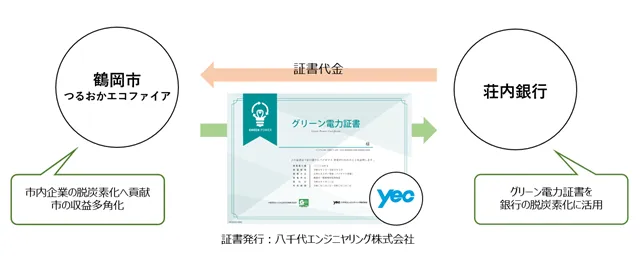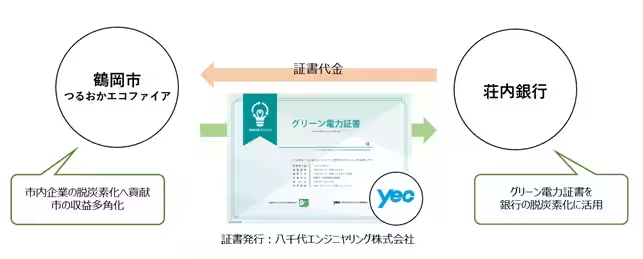

Groundbreaking Initiative: Local Bank Uses Green Power Certificates from Municipal Clean Center
Introduction
In an innovative move for environmental conservation, Yachiyo Engineering Co., Ltd., based in Tokyo, has announced a pioneering initiative in Japan where a local financial institution has secured green power certificates from a municipal waste processing facility, the Tsuruoka Eco Fire. This first-of-its-kind project demonstrates a commitment to sustainability and local economic development, as the certificates allow for the offsetting of carbon dioxide emissions derived from the bank's energy consumption.
Overview of the Initiative
The project is centered around the creation of green power via renewable energy sources, specifically biomass. Yachiyo Engineering issues green power certificates for the environmental value contained in this green electricity, which are then certified by a third-party organization, the Japan Quality Assurance Organization. Local businesses can purchase these certificates, enabling them to offset a portion of their CO₂ emissions equivalent to the amount of green power they buy. This approach significantly promotes carbon neutrality among corporations in the region, aligning with global sustainability goals.
Key Features of the Initiative
1. Realizing Local Economic Circulation
This initiative actively supports local economic circulation by channeling funds from Shonai Bank’s purchases of green power certificates back to Tsuruoka City. The money contributes to local solutions addressing various community challenges, effectively creating a closed-loop system for environmental value within the region. As a result, not only does it enhance sustainability, but it also fosters economic growth through responsible resource management.
2. Promoting Decarbonization in the Region
Utilizing certificates and credits is essential for businesses striving to decarbonize. By taking the lead in implementing green power certificates, Shonai Bank shows local enterprises a new path toward carbon reduction. This initiative allows companies to engage in meaningful carbon-saving practices without upfront equipment investments, providing more accessible options, especially for businesses in challenging conditions, such as those facing snowy weather that complicates solar power usage.
3. Effective Utilization of Waste Resources
Municipal waste is viewed as an 'asset' in this framework. For the Tsuruoka Eco Fire, the biomass used for electricity generation is sourced directly from local waste. This endeavor highlights the economic value of waste, encouraging effective resource usage instead of viewing waste merely as a disposal issue. By transforming waste into energy, Tsuruoka Eco Fire not only supports environmental goals but also promotes an innovative approach to waste management.
4. Details of Green Power Certificate Issuance
The project anticipates generating approximately 42,000 kWh of electricity through biomass energy from October to December 2024, with an expected issuance date for the green power certificates set for May 13, 2025. This ambitious initiative aims to create a sustainable future for the community by emphasizing the importance of renewable energy and local resource management.
Conclusion
This initiative by Yachiyo Engineering and Shonai Bank serves as a blueprint for how local financial institutions can meaningfully engage in sustainable practices while bolstering the local economy. As the world faces increasing environmental challenges, such collaborative efforts not only enhance community resilience but also pave the way for a greener future. Through innovative projects like this, we can envision a world where waste becomes a resource, local economies thrive on sustainability, and communities are empowered to meet their environmental goals actively.

Topics Other)










【About Using Articles】
You can freely use the title and article content by linking to the page where the article is posted.
※ Images cannot be used.
【About Links】
Links are free to use.